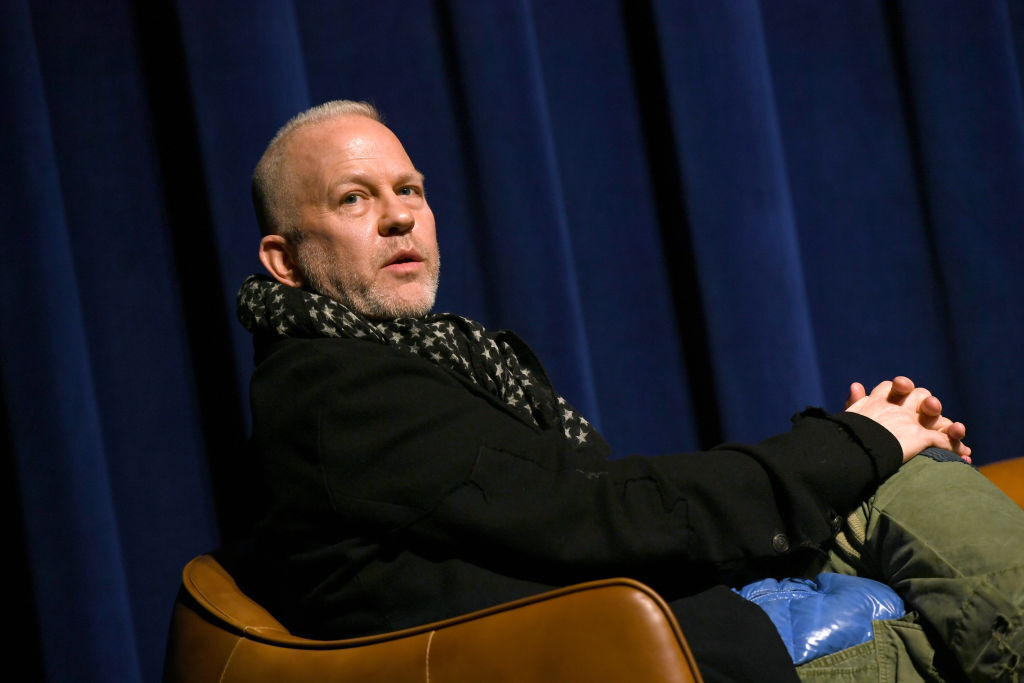Yesterday, it was reported that prolific showrunner Ryan Murphy is mulling over the idea of a new show about Hollywood predators, tentatively called Consentbut is this really Murphy’s story to tell?
The out gay showrunner is known for his loud, lurid ideas. He’s a hit-maker, and for the last decade, his work has become ingratiated in our culture; from the musical comedy Glee, to the horror anthology American Horror Story, and all the Scream Queens and The People Vs. O.J. Simpson in between, it seems as though anything the silver-haired producer touches turns to TV gold. But when he sat down with The New Yorker this week and revealed his plans for the upcoming Consent project, as part of his newly-inked Netflix deal, it was hard not to feel like Murphy’s finally overstepped.
The series, according to the 52-year-old producer, would be inspired by the #MeToo movement and would operate like Black Mirror, in that each episode will tackle another predator, like Kevin Spacey, an “insidery account of The Weinstein Company,” or “an ambiguous he-said-she-said encounter,” he said. Even reading that sentence sends a shiver down my spine, because the phrase “ambiguous he-said-she-said encounter” proves Murphy hasn’t fully grasped what the movement he plans to memorialize is about.
We are still very much so in the vice grip of the #MeToo momentjust yesterday, the Pulitzer Prize winning journalist Ronan Farrow outed New York Attorney General Eric Schneiderman in a Weinstein-esque abuse scandaland Weinstein victims like Asia Argento and Rose McGowan are currently, in this moment, grappling with that headline.
“Many Weinstein victims were in touch with Eric Schneiderman. He promised he would protect them and help them get justice,” Argento tweeted, continuing, “Who can we trust? Nobody.” McGowan responded, “We know the truth @AsiaArgento. We have each other.”
So, this is not a glance back at a nefarious moment in culture, like HBO’s Paterno, the Joe Paterno biopic released last month about the aftermath of the Jerry Sandusky scandal at Penn State. Or The Post, which followed the Katharine Graham’s decision to publish the Pentagon Papers. This cultural shift is very much so still unraveling. Victims are still grieving. Predators are still being outed. At least give the victims, and movement, room to breathe.
With that being said, this is by no means Ryan Murphy’s story to tell. Every single day, I am blown away by the audacity and tone-deafness of men, and gay men are not immune. Murphy is still a white man with considerable wealth and power. It seems so clear and obvious to me, and to other women who have tweeted their frustration with this announcement, that the story of the #MeToo movement and the Weinstein scandal, belongs to womenspecifically, the victims.
Of course, male victims like Anthony Rapp and Terry Crews have also bravely come forward with accounts of abuse and harassment in Hollywood. But #MeToo was started and spearheaded by women, like Tarana Burke, the movement’s founder, or the countless vocal celebrities like Rose McGowan, Alyssa Milano, Amber Tambyln, Debra Messing, Uma Thurman, and Mira Sorvino. A woman needs to tell this storyand hearing that a rich, powerful, white man in Hollywood feels like he has the equipment necessary to helm such a narrative, or treat it with the delicacy and authenticity it demands and deservesmakes my stomach churn.
So often, women’s painful experiences are exploited, sensationalized, and recounted by male storytellers for their own benefit. Battle of the Sexes, which followed tennis champion Billie Jean King in her traumatic struggle with sexuality and 1970s chauvinism, was written by a man. I, Tonya, which recounts Tonya Harding’s agonizing experience with domestic violence and cruel media attention, was written and directed by men. And Oscar-winner Three Billboards Outside Ebbing Missouri, which tells the real-life story of a mother on a scorched-earth journey to avenge her daughter’s rape and murderwritten and directed by men.
Obviously, I’m not suggesting a moratorium on male-penned female narratives, but the gendered imbalance as far as who gets to tell these stories is blindingand institutionalized. Women should be given more chances to helm their own goddamn narratives, and with something as fraught, current, and distressing as systemic male sexual aggression, harassment, and abuse toward womendoesn’t it seem blatantly obvious that a white man of power shouldn’t recount this epoch? Did that ever once cross Ryan Murphy’s mind?
The #MeToo movement isn’t just about sexual abuse and outing predators. It’s about said systemic treatment of women, and the ways in which we’ve historically allowed men to get away with insidious behaviors in the workplaceand everywhere. For too long, men have been given carte blanche to assert their cultural dominance and privilege over women, using physical strength, sexual violence, and verbal threats. And allowing a person like Ryan Murphy to be the one to record this significant moment in history, through his lens, is so ironic, it’s nearly comical. Because of course, right? Of course a man gets to tell this female-heavy narrative. Of course a man gets to exploit female pain and reap the monetary and cosmetic value while positioning himself as a feminist storyteller.
This is just the way it isand it’ll never change until we demand it. The proof was in the pudding this past awards season, where male creators were heralded for their award-winning female-forward stories.
Photo by Kevin Winter/Getty Images
Don't forget to share:
Help make sure LGBTQ+ stories are being told...
We can't rely on mainstream media to tell our stories. That's why we don't lock our articles behind a paywall. Will you support our mission with a contribution today?
Cancel anytime · Proudly LGBTQ+ owned and operated
Read More in Culture
The Latest on INTO
Subscribe to get a twice-weekly dose of queer news, updates, and insights from the INTO team.
in Your Inbox













